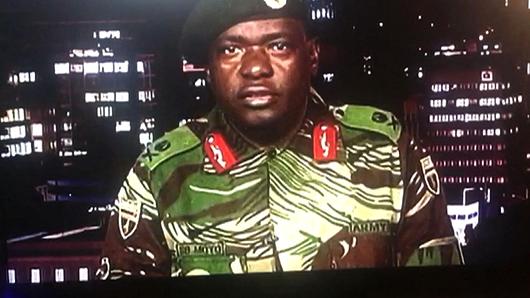
AFP | Getty Images
This screen grab taken early on November 15, 2017 from a television broadcast on the Zimbabwe Broadcasting corporation (ZBC) shows Zimbabwe Major General Sibusiso Moyo reading a statement at the ZBC broadcast studio in Harare. Zimbabwe’s military appeared to be in control of the country on November 15 as generals denied staging a coup but used state television to vow to target ‘criminals’ close to President Robert Mugabe.
Alisha Patel, Sub-Saharan Africa analyst at AKE, told CNBC in an email that: “Mugabe’s rule had long been despised, with the deep factionalism within the ruling ZANU-PF demonstrating this. However, up until now there had appeared to be no way to unseat the 93-year-old president.”
“The military takeover is the latest development in an increasingly bitter and public succession battle for the presidency, and more importantly the vast patronage opportunities that come with it,” Patel said. “Moreover, it is a tremendously significant development. For Mugabe, the end appears to be nigh after 37 years in power, and he looks set to be little more than a lame duck president. A Mugabe dynasty now appears to be equally unlikely.”
Regarded by some as an African revolutionary hero who rid Zimbabwe of minority white rule, Mugabe’s leadership since 1980 has been largely characterized as tyrannical, marked by severe economic mismanagement leading to famine and hyperinflation, violent suppression of opposition, corruption and human rights abuses.
International sanctions imposed on the country as a result have pushed it further into isolation and economic decline. By 2008, unemployment in Zimbabwe was at 94 percent and inflation had skyrocketed to more that 1000 percent.
 EU News Digest Latest News & Updates
EU News Digest Latest News & Updates


